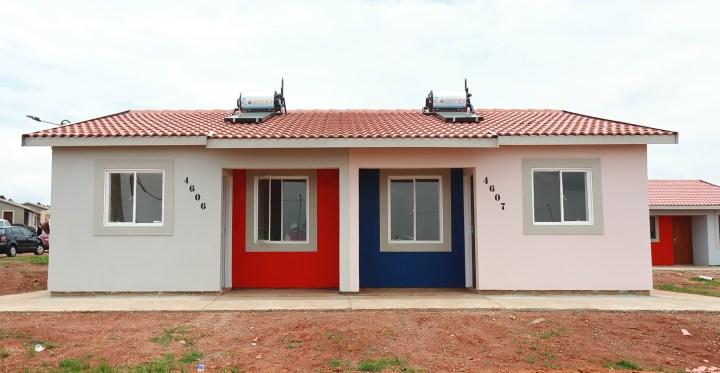CONSUMER DEBT
Interest rates increases add stress for first-time homebuyers

Rising interest rates and inflation are taking their toll on consumer debt levels, with DebtBusters reporting an increase of more than 30% in debt counselling inquiries year-on-year for the third quarter.
The head of DebtBusters, Benay Sager, says that an increasing number of inquiries are from consumers who were first-time buyers of assets while interest rates were at historical lows before November 2021.
According to Lightstone, which provides market data and analytics, about one-third of all homes sold in South Africa during the past decade were purchased by first-time home buyers — a figure which rose to 37% after the aggressive interest rate cuts in 2020 and remained at 37% in 2021 before rising further to 39% during the first half of 2022.
Notably, the last time there were almost as many sales to first-time home buyers was in 2008 — with a total of 92,177 sales transactions — just before the global financial crisis.
“The impact of [rising] inflation and interest — is evident in the data, which shows consumers are using unsecured credit to supplement their income. Average loan sizes have increased by 43% in just six years,” Sager says.
The annual inflation rate soared to a 13-year high of 7.8% in July 2022, up from 7.4% in June and well above the upper limit of the South African Reserve Bank’s target range of 3%-6%. Annual core inflation, which excludes food prices, non-alcoholic beverages, fuel and energy, rose to 4.4% in July 2022 — the highest since October 2017.
Visit Daily Maverick’s home page for more news, analysis and investigations
The SA Reserve Bank hiked interest rates for the sixth successive time in September, with an increase of 75 basis points taking the prime lending rate to 9.75%.
Samuel Seeff, chairman of the Seeff Property Group, says the property price boom is now largely over. Price growth continues its steady decline and sellers are cautioned against holding back for higher offers. Buyers must now adjust to the higher interest rate, but Seeff says the upside is that there is now more room to negotiate more aggressively.
“The deteriorating buying conditions will likely push more people into the rental market. Given that there are stock shortages in certain areas, we could start seeing rental rates rise, which will be good for the rental market, which has been largely flat over the last two years,” Seeff says.
Consumers who applied for debt counselling in the third quarter of this year had:
- Thirty-three percent less purchasing power: While nominal income was on a par with 2016 levels; when cumulative inflation is considered, the money in South African wallets and purses bought one-third less than it did six years ago.
- A higher debt-service burden: On average, consumers inquiring about debt counselling are spending 62% of their take-home pay to service debt. For those taking home less than R5,000 a month, the total debt-to-income ratio is 87%, and for those with a take-home income of R20,000 or more, it is at a historic high of 150%.
- Unsustainably high levels of unsecured debt: Average unsecured debt levels were 26% higher than in 2016. Sager says the average figure is lower than during some previous years, possibly because of lender circumspection. “But, for consumers in the R20,000-or-more income band, unsecured debt levels were 50% higher. This is a direct result of these consumers using unsecured credit to make up for the cumulative impact of inflation on their take-home income,” Sager says.
Sager cautions that inflation and interest rates are very likely to keep rising into 2023. According to research conducted by TransUnion at the end of August, 74% expect their incomes to increase in the next year, while 64% said they will be able to pay their current bills and loans in full.
Weihan Sun, the director of research and consulting at TransUnion Africa, says continued inflationary pressures may cause further cuts in consumer spending.
“We see the country’s shrinking unemployment rate being a key driver of improved household incomes, but despite improved household incomes and a greater ability to service debt, the rise in inflationary pressures is definitely going to see some consumers cutting back on discretionary spending. This sentiment is likely to continue in the coming months,” said Sun.
The TransUnion Consumer Pulse Study shows that Gen Z consumers (born between 1995 and 2004) reflected the largest increase (41%) in household income in the past three months, with 21% saying they started a new business. Twenty percent received a salary increase and 17% started a new job in the month before the survey. DM168
This story first appeared in our weekly Daily Maverick 168 newspaper, which is available countrywide for R25.



















Comments - Please login in order to comment.